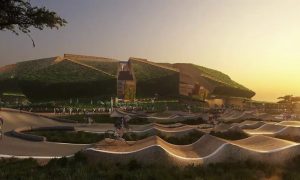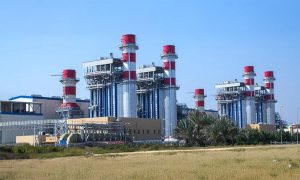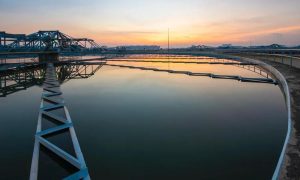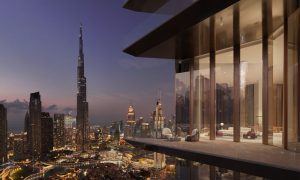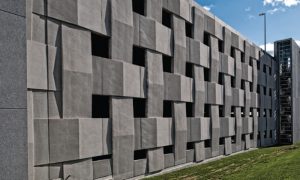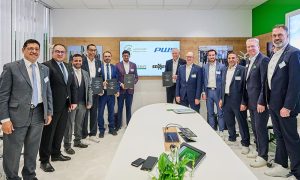Women in Construction: Parsons’ Leah McKenna
“My father is an architect and developer, so from a young age, I was accompanying him on site visits and I loved it”
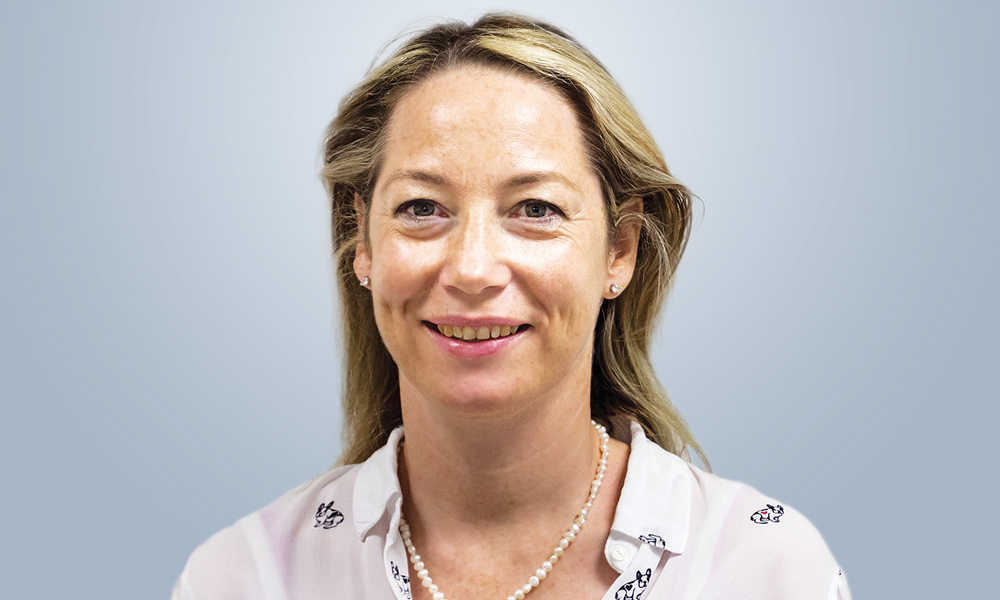
“I do not think it matters if you are male or female. I have not noticed any difference in my treatment here from clients or colleagues. There has been nothing that stuck in my mind, either positive or negative.”
As part of the Women in Construction series, Parsons’ Leah McKenna talks about being the daughter of an architect, visa problems and the need for openness on salaries.
What drove you to get into construction and your very first role in the industry? What were some of the influences that set you on your path?
My father is an architect and developer, so from a young age, I was accompanying him on site visits and I loved it. At school, as I had a natural tendency towards math and science, I looked at careers in the field of engineering and chose civil, so that I could get exposed to site work and the construction of megaprojects. My first role after university was onsite working on a sports stadium, where I learned so much from the craft people, carpenters, and foremen. This really shaped my attitude, and I have always kept ‘buildability’ in mind when designing or managing construction projects.
Tell us about your career, mentioning key milestones.
My engineering career began on a construction site where I was assigned the role of deputy resident engineer for the design consultant. Here, I had exposure to all the trades and was (in addition to my regular role) tasked with ensuring the high quality of finishes. The project opened on schedule and the team’s relationship between the contractor, client, and consultant was very open, and therefore very good. This project helped me realise the importance of communication, something I had touched on in my final-year thesis. I moved from the site into a design office (as design engineer) to try to grow my knowledge base. The projects I worked on and eventually managed ranged from banks to steel-framed warehouses to university campus buildings and included rerouting major municipality infrastructure and road connections. I had to coordinate with clients, other consultants, and municipality stakeholders for each project. Health and safety became critical components at the time. My mentor was a female design engineer and it was great to have that support early in my career and to see how she managed teams and clients effectively and professionally.
I then moved to the local authority and into the roads department, so I went back to university part time to do a ‘taught masters’ in this field. I became an area engineer with a team reporting to me and I had to attend stakeholder meetings regularly. The keys were communication and empathy. Stakeholders were often elected members and politicians and I received media training to boost my skills. I received the title of chartered engineer while working in the roads section and became one of the youngest to be appointed as senior executive engineer (SEE) within the city council (local authority). I then moved into a project manager role, as SEE, in the engineering department. Again, I went back to college and earned a diploma in project management from the Institute of Public Administration. In my day-to-day job, I had to manage budgets and apply to the Department of the Environment for funding as well as do monthly and annual cost reports for them. I was managing design consultants and contractions on two major infrastructure projects within the city and had to come in close to budget and schedule goals on them. I presented one of the projects to the ‘Engineers Ireland’ annual awards and it won best in our category that year.
After moving overseas, I took a position with Parsons, as project manager. I have been here for almost four years and am assigned to Al Mouj Muscat. This is a mixed-use development with various stakeholders, including MAF and Omran. Parsons provides landscape and infrastructure design for the project and performs construction management services. I work with a Parsons’ team of 35 people based onsite. I maintain client relationships and try to predict the needs of the client and assist where Parsons has the skills. I am a Parsons-certified project manager and the Oman area lead for the built environment.
What would you say is your proudest moment in the industry?
It’s difficult to say what has been my proudest moment. I feel proud of the overall achievement I’ve made in progressing up to management positions quite quickly and feeling I was able to do the job! I have been lucky to have had support in every company I’ve worked in so far, with my managers always believing in the positive impact of women on teams.
What are some of the barriers to women entering the construction industry? What was your personal experience?
Most people look at resumes for experience and skill, not gender. I have not faced any barriers to date in my career but some countries have cultural issues with women, and getting work visas can be a challenge. I was unable to get work when my family lived in India due to visa restrictions for spouses.
Everyone has a part to play in diversity and equal pay. What would you like to see government authorities and construction firms do to increase diversity and make pay a level playing field?
In short, all companies need to be more open about salaries. I believe many government jobs have pay scales, so at least equal pay can (theoretically) be achieved; however, many private firms agree on salaries during the interview and it comes down to confidence and negotiating skills. Women tend to undersell themselves at the interview stage and only shine on the job. The opportunity to revisit salary is not often available once the contract is signed.
Besides authorities and construction firms, who else can play a part in increasing gender diversity and balancing pay scales?
Professional bodies, such as the Construction Industry Federation or Engineers Ireland, and possibly universities could push for this. I know Engineers Ireland did a recent survey on pay scales, so this could feed back into the system and be used to help monitor and manage more equal pay.
As a woman in the industry, what has your experience been working in the GCC construction sector? If you have worked in markets outside the GCC, how does your experience here compare with what you’ve experienced and observed in other markets?
Overall, it has been a positive experience here for me. The main differences I see relate to the diverse cultures and ethnicity, which can sometimes bring challenges. The communication and the expectations can take time to align, and patience is the greatest virtue! I do not think it matters if you are male or female. I have not noticed any difference in my treatment here from clients or colleagues. There has been nothing that stuck in my mind, either positive or negative.
In your opinion, what is the biggest challenge women in the construction sector face in GCC countries? How can these challenges be addressed?
I don’t really see any challenges, just a slow start on getting local women educated, through the system, and up to senior management. I see many Omani women in manager positions within the municipalities, and they will hopefully continue to rise to more senior positions.
In doing your job, what sort of discrimination (if any) have you faced and how did Parsons address it?
None at all.
Do you feel there’s a limit with regards to how far you can progress within Parsons?
No. I think Parsons is very fair and appoints staff based on merit.
How does Parsons approach diversity in the workplace? What more can the company do to increase gender diversity?
Flexibility to work at home can improve work-life balance and Parsons has a work at home policy. I know that I have permission to work around the school day schedule, when possible, as long as I keep on top of my work and keep my clients happy.
How do you personally push for diversity and equal pay in the construction sector? Are you involved in any groups/councils etc. that focus on increasing diversity and equal pay?
I am not involved in much in the GCC, apart from two international secondary schools’ careers fairs. In Ireland, I was actively involved in Women in Construction and arranged talks and tours across many projects in Dublin. I was also the main driver for mentoring at work (both providing mentoring and promoting it within the organisation). I was actively involved in school programs and college talks, encouraging students to do higher level math and to think about engineering as a career.
What advice would you give to a woman entering the GCC construction industry today?
Believe in yourself! You can do it!
To support the drive towards gender balance in the industry, Middle East Consultant and meconstructionnews.com are highlighting female construction professionals in a series of profiles. By telling their stories and sharing their experiences on our print and digital platforms, we hope to inspire more women to join this vibrant industry.



